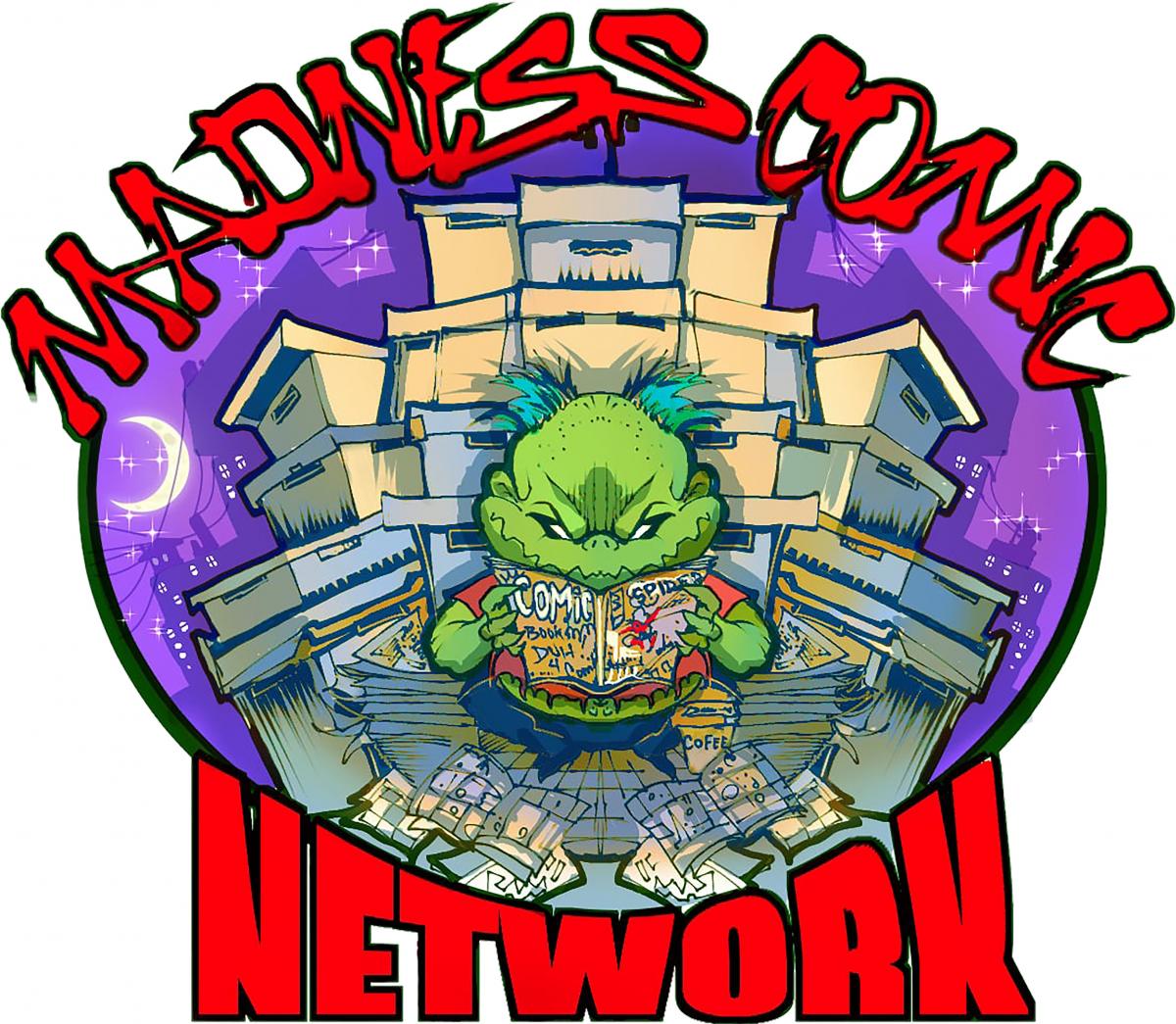Doctor Strange in the Multiverse of Madness is the 28th film in the Marvel Cinematic Universe. Benedict Cumberbatch returns as Dr. Stephen Strange, the Master of the Mystic Arts. Continuing directly from the events of Spider-Man: No Way Home, Strange faces monstrous threats like Gargantos (Shuma-Gorath in the comics, named changed due to copyright reasons) alongside his friend and colleague Wong, (Benedict Wong), the Sorcerer Supreme. But since Spider-man wouldn't shut up during Strange's spell of forgetfulness, the Multiverse is slowly coming apart at the seams. To fix the damage, Strange recruits new allies, including Wanda Maximoff/Scarlet Witch (Elizabeth Olsen) and America Chavez (Xochitl Gomez), a teleporter from a different dimension. Wanda soons succumbs to the influence of the Darkhold, a tomb of evil magic that corrupts anyone who reads it.
I'll try to minimize the spoilers, but if you're trying to avoid that potentiality, please stop now and come back once you've seen the film. I'm guessing that the first thing you want to know is if Doctor Strange in the Multiverse of Madness is any good. Clocking in at a brisk 2:06, the film doesn't wear out its welcome. There are a ton of excellent CGI shots, making for intense battles and sinister foes. Cumberbatch is as smooth and as cool as ever and a worthy successor to Robert Downey Jr. as the lynchpin of the MCU. Olsen continues her ascent in Hollywood with yet another show-stealing turn as the mentally fragile Scarlet Witch. Gomez hold her own against these powerhouse actors, but I wonder if her character is adequately explained?
The inclusion of the Illuminati, a collection of the best and brightest of the Marvel Superheroes, was a FANTASTIC moment -- when John Krazinski appeared on the silver screen as Reed Richards, the patriarch of Marvel's "First Family," clad in that familiar blue and white uniform, many of the critics in attendance for this pre-screening clapped and cheered. Chiwetel Ejiofor's Mordo, returning from the first Doctor Strange film, is a member of this particular rendition of the Illuminati, as is Haley Atwell as the modernized Captain Carter last seen in the Disney+ show What If...? Anson Mount returns as the powerful Black Bolt, having previously played the part in the underwhelming Inhumans TV show. Last but certainly not least, the first Mutant officially seen in the Marvel Cinematic Universe arrives in the form of Professor Charles Xavier, played by the always wonderful Sir Patrick Stewart. It's an exciting ensemble, and personally I'd have liked to have seen much more of the Illuminati. Sam Raimi, the director of the Tobey Maguire Spider-Man films, keeps the action moving at a relentless pace. Raimi took over the director's chair from Scott Derrickson, who directed the first Doctor Strange film, after Derrickson left the production over creative differences. Derrickson's treatment was rumored to be heavily horror-themed. While Raimi's film has some dark moments, I didn't feel it was ever particularly horrifying.
And that's my biggest quibble with this film. LIke The Eternals and Shang Chi and the Legend of the 10 Rings, Doctor Strange in the Multiverse of Madness lacks a strong connection to a greater overarching story. The first three phases of the MCU offered a glimpse of what's to come, and it was often a tantalizing morsel. Nick Fury appeared at the end of Iron Man. Tony Stark appeared in The Incredible Hulk, having a drink with General Thaddeus Ross. Iron Man 2 debuted everyone's favorite Agent of S.H.I.E.L.D., Phil Coulson, along with Thor's hammer, Mjolnir. When Thanos appeared for a very brief cameo in The Avengers, you knew without a doubt that everything was connected and building to a larger story that would impact everything. I've yet to experience that feeling in Phase 4. Pip the Troll and Starfox showing up at the end of The Eternals was interesting, but with Thanos dead, what is his brother doing in the MCU now? And in a subplot that was far too understated, Dane Whitman pulls out his Ebony Blade, the weapon he wields as the Black Knight, but that character is never really realized in the film, and in an even more peculiar choice, they used a voice over by Mahershala Ali's Blade without ever showing him or identifying at all. The only film to connect back to the pre-Endgame cast was Shang Chi, where Shang, Katy and Wong meet with Captain Marvel and Bruce Banner before inexplicably partying at a karaoke bar. There are two credit scenes in Sam Raimi's return to Marvel movies, the first featuring Charlize Theron in a role long associated with Doctor Strange in the comics. The second post credits scene is a completely useless gag featuring everyone's favorite king of cheese, Bruce Campbell. Feel free to leave after Theron's scene unless you're a huge Bruce Campbell fan.
Kevin Feige and company could get away with passing on interconnectivity in the earlier phases of the MCU, because those films featured the most recognized heroes in the Marvel Universe. Phase 4 features more obscure, lesser known characters, and the films would benefit from feeling more connected and a part of something bigger. Granted, the appearance of the Illuminati could be the start of exactly what I find missing, but as cool as Shang Chi and Captain Carter and some of the Eternals are, it's getting a little late to entice the average fan to care as much as they did for Captain America, Black Panther and the Guardians of the Galaxy.
Doctor Strange in the Multiverse of Madness is rated PG-13 and opens in the U.S. on May 6, 2022.



